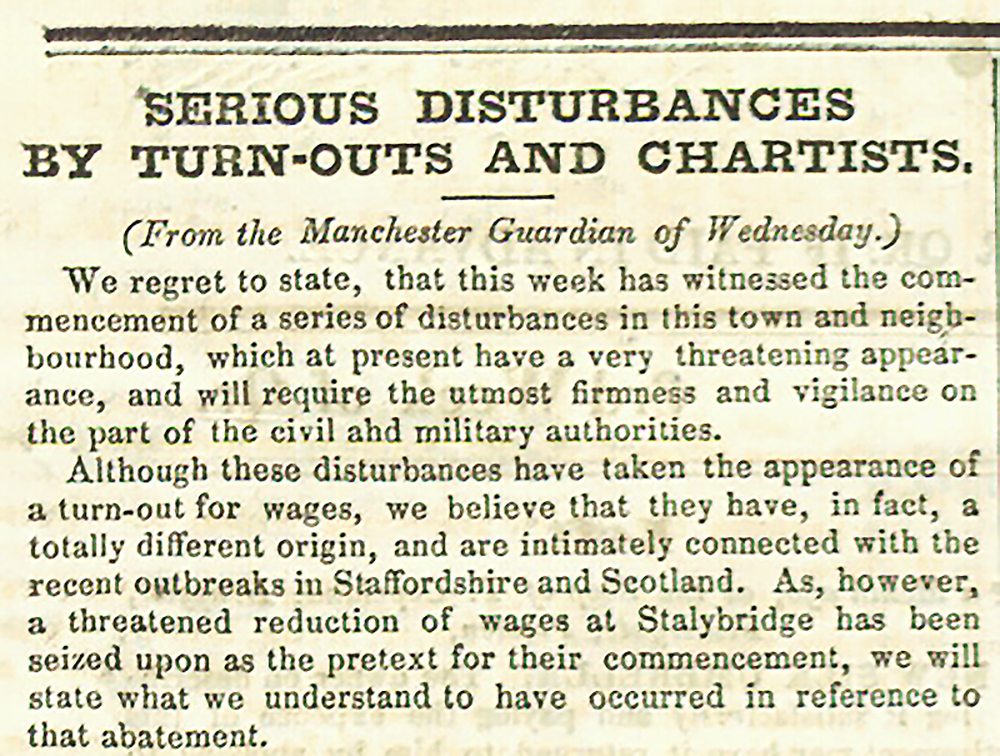
Extracts from an article about trouble in Manchester and its surroundings in ‘The Preston Chronicle and Lancashire Advertiser’, 13 August, 1842, Catalogue ref: HO 45/249A f28
Transcript
SERIOUS DISTURBANCES BY TURN-OUTS AND CHARTISTS
(From the Manchester Guardian of Wednesday.)
We regret to state, that this week has witnessed the commencement [beginning] of a series of disturbances in this town and neighbourhood, which at present have a very threatening appearance, and will require the utmost firmness and vigilance on the part of the civil and military authorities.
Although these disturbances have taken the appearance of a turn-out for wages, we believe that they have, in fact, a totally different origin, and are intimately connected with the recent outbreaks in Staffordshire and Scotland. As, however, a threatened reduction of wages at Stalybridge has been seized upon as the pretext [excuse] for their commencement, we will state what we understand to have occurred in reference to that abatement …
A ‘turn out’ meant the turning workers out of the factories, stopping their work, and marching through the streets.
- What is another word for a ‘turn-out’?
- What information suggests that the authorities expected trouble in Manchester and the local area?
- In extracts 4b (i) and 4b (ii) which workers joined together to demonstrate?
- What was the aim of the demonstration?
- What is meant by the phrase ‘No one should work until they have their rights’ in extract 4c?
- Do you think that there were links between the demand for higher wages, poverty and the Chartist movement, or were they separate issues?
- Does this newspaper article help explain support for Chartism?
- Can you describe the tone and attitude of the newspaper article? What other sources could help you find out more about these events?
